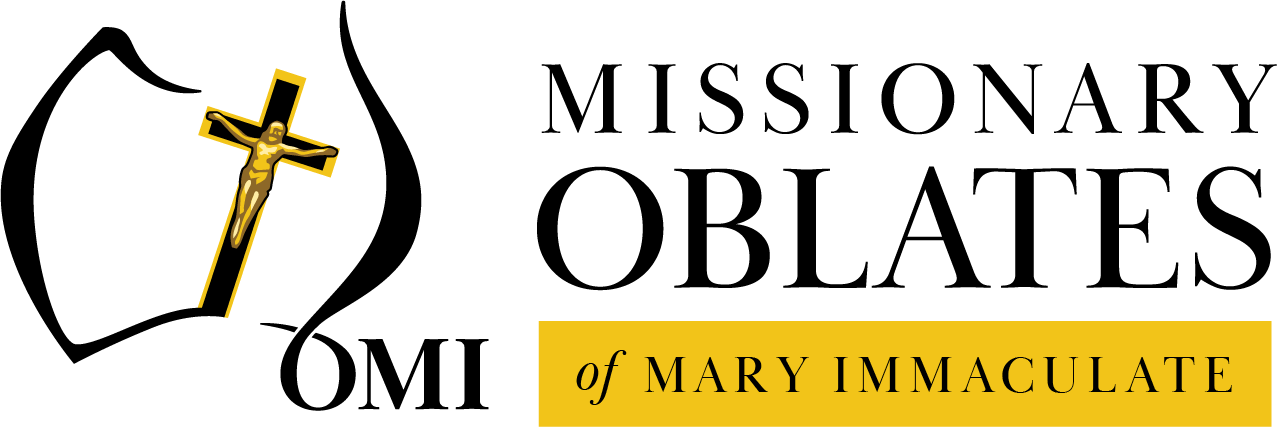The OBLATE CHARISM
"Whoever wishes to become one of us must have an ardent desire for his own perfection, and be enflamed with the love for our lord jesus christ and his church and a burning zeal for the salvation of souls..." (rule of 1853)
"The community of the Apostles, with Jesus the model of our life." (Const. 3)
"Like the Apostle, to preach 'Jesus Christ, and him crucified...not in loftiness of speech.' That is to say, by making manifest that we have pondered in our hearts the words which we proclaim, and that we began to practice before setting out to teach" (Rule of 1826)
"Wherever we work, our mission is especially to those people whose condition cries out for salvation and for the hope which only Jesus Christ can fully bring." (Const. 5)
"The Founder left us a legacy: 'Among yourselves practice charity, charity, charity - and, outside, zeal for the salvation of souls.' In fidelity to that testament, each member's zeal is sustained by the bonds of fraternal charity." (Const. 37)
These quotations show both the realism and the ideal of our life. Seeing the demands of our commitment sometimes frightens us. Mediocrity is always a potential danger. Daily generous fidelity, often heroic, that is the way followed by our brothers whose holiness the Church has recognised: Saint Eugene de Mazenod, Blessed Joseph Gerard, the apostle of Lesotho, and Blessed Joseph Cebula, who was killed in Mauthausen in 1943, and so many others whose anonymous holiness is registered in the heart of God.
the Oblate Cross
In 1807, during the adoration of the cross on Good Friday, St Eugene de Mazenod received a special grace which brought him face-to-face with the true love and mercy of Christ's sacrifice for the redemption of all humanity. Tears filled his eyes as he suddenly became profoundly aware of the Divine Mercy of the Lord. This may have been the most important event of his conversion because it was at that moment that he decided to offer his life to Jesus the Saviour.
Inspired by the cross, St Eugene began his ministry. He gathered other priests who were also willing to offer their lives to serving God and evangelizing the poor. His new order of missionary priests and brothers would eventually be called the Missionary Oblates from the term Oblation, meaning offering. St Eugene's passion for the cross was something he instilled in all of his Oblate brothers as he adopted the cross as a crucial sign of the charism and mission of the Missionary Oblates. The cross was considered their principal tool of evangelization. The founder wished each of his missionary sons to wear the cross as a distinctive sign of our apostolic mission. It became an essential part of our religious habit, given on the day of profession as a distinctive sign of our ministry. Oblates have since always carried their Oblate crosses to their mission around the world as a sign of God's mercy, and as a constant reminder of the virtues of humility, charity and modesty.
By 1830, the passing on of the missionary crosses from deceased Oblates to new Oblates was part of the Oblate tradition. Each new Oblate receives the cross of one of his deceased brothers so that he can be inspired by and further the legacy of that brother. These shared crosses are a sign of our Oblate brotherhood in Christ. St Eugene's cross is worn today by our Superior General.



